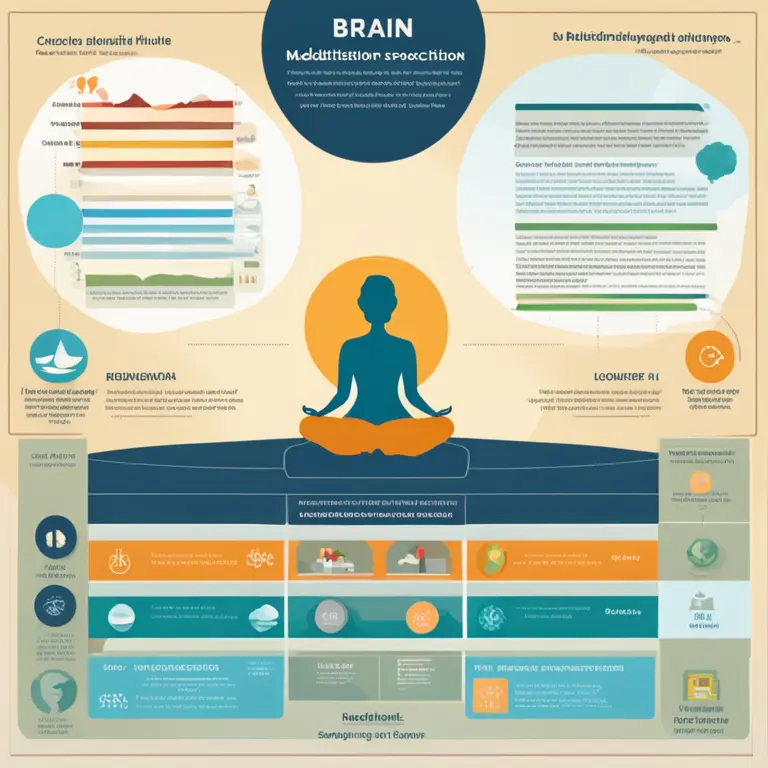
Can Meditation Help Reduce Stress Levels?
Explore how meditation can be a potent tool for stress relief and fostering inner peace in a fast-paced world.
article by Hina Kurosawa
Stress in the Modern World
In an era of relentless progress and constant connectivity, our lives have become a juggling act between personal aspirations and professional responsibilities. The modern world, with its incessant demands, often leaves individuals grappling with heightened stress levels. In search of solace and equilibrium, many turn to ancient practices, repurposed for contemporary needs. One such enduring technique is meditation – a practice with deep historical roots, believed by many to alleviate stress and enhance overall well-being.

The Science of Meditation and Stress
The study of meditation has piqued the interest of the scientific community, resulting in a growing body of research. Cutting-edge studies carried out in 2024 have linked consistent meditation to a reduction in symptoms associated with stress, such as anxiety and depression. The mechanism is believed to be related to changes in brain function and the regulation of stress hormones. By encouraging a state of relaxation, meditation can help lower cortisol levels, often referred to as the 'stress hormone,' thereby aiding in stress amelioration.

Different Forms of Meditation
Meditation is not a monolith; it is an umbrella term that encompasses a variety of techniques. From mindfulness meditation, where practitioners focus on the present moment, to transcendental meditation, which involves the repetition of a mantra, options abound for those seeking stress relief. Other forms, like guided imagery or loving-kindness meditation, offer alternative approaches. Each method offers a unique pathway towards tranquility, allowing individuals to explore and adopt the practice that resonates most with their personal outlook and lifestyle.

Meditation as a Regular Practice
The key to reaping meditation's stress-reducing benefits lies in regular practice. Just like physical exercise, the effects of meditation are cumulative and become more pronounced over time. Many find that setting aside a specific time each day for meditation helps in establishing a consistent routine. Whether it is a few minutes in the morning to set intentions for the day or a quiet evening session to unwind, making meditation a habitual practice can serve as a cornerstone for stress management.

Technology and Meditation
Embracing the digital age, the realm of meditation has expanded to include tech-driven tools designed to aid practice. Meditation apps, virtual reality experiences, and online guided sessions have emerged, making it easier than ever to explore various techniques from the comfort of one's home. These innovations have democratized access to meditation resources, motivating a wider audience to adopt the practice and experience its stress-alleviating benefits. Thus, the intersection of technology and ancient wisdom has fostered new avenues for cultivating serenity.
Overcoming Obstacles in Meditation
While there are ample benefits, newcomers to meditation may face challenges such as restlessness, skepticism, or impatience. However, with persistence and the right mindset, these hurdles can be surmounted. Building a supportive meditation community, seeking qualified guidance, and gradually increasing meditation duration are strategies that can facilitate a smoother journey into meditative practices. Recognizing that the path to reducing stress through meditation is as much about the journey as it is the destination can inspire and sustain commitment.
Published: 1/15/2024
Modified: 1/15/2024
More predictions
Come back here soon to learn more about yourself and your future


Healing Through Mindfulness: Meditation & Trauma Recovery
Mindfulness meditation offers a powerful tool for individuals seeking solace and healing from traumatic experiences. Discover how this practice can aid in the journey towards inner peace.


Easing Loneliness with Mindfulness Meditation
Explore how mindfulness meditation can provide solace and connection to alleviate the feelings of loneliness.


Discovering Life with Meditation Mantras
Delve into the transformative power of meditation mantras to harmonize your mind, body, and spirit for a tranquil existence.